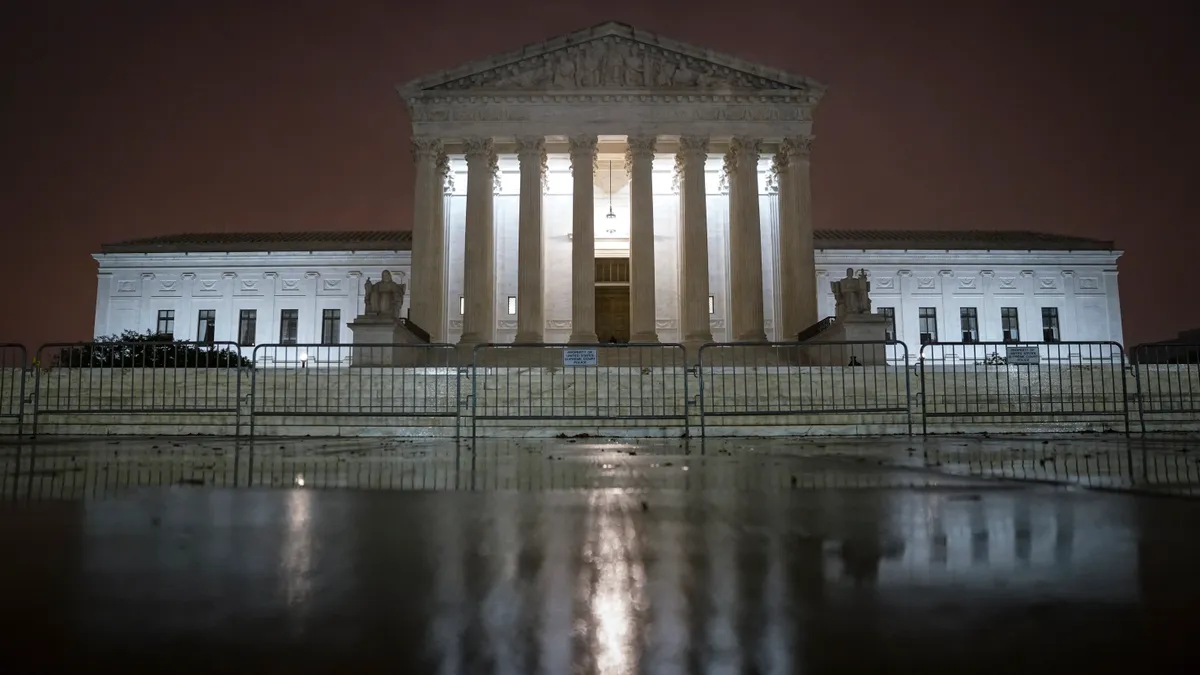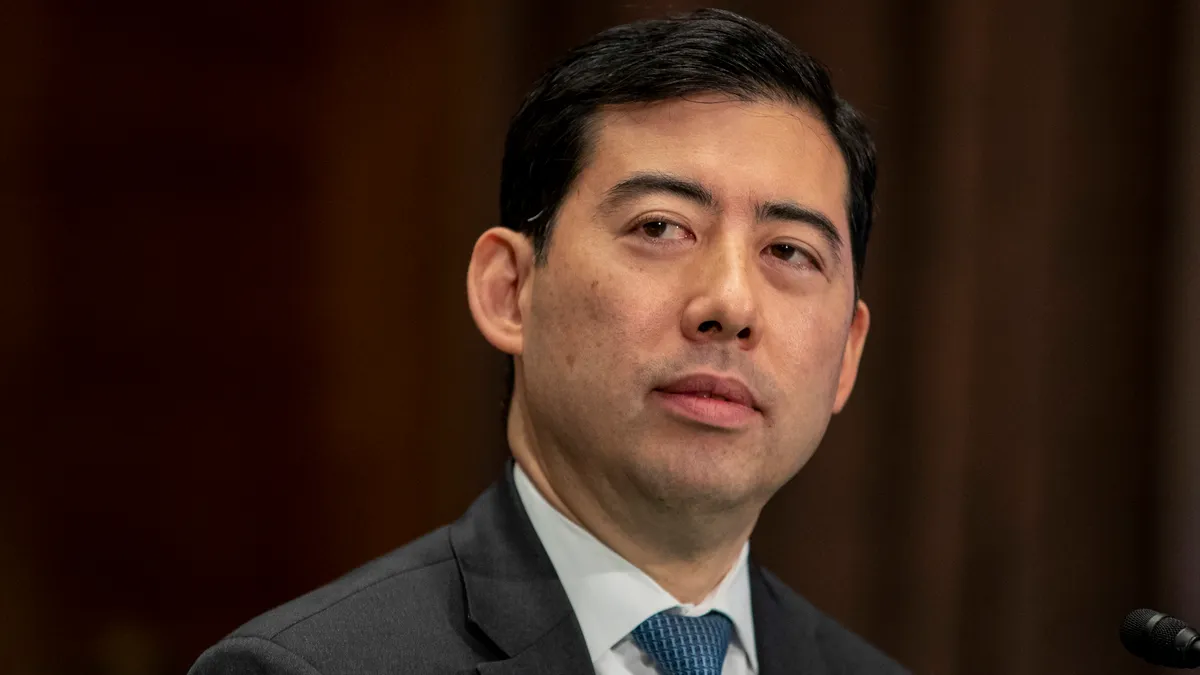After a three-month break, the Supreme Court opens its new term in early October. The Washington Legal Foundation presented an overview webinar on Wednesday to discuss cases of significance to business.
These involve issues ranging from how extensive a federal agency’s environmental impact analysis should be to questions of whether U.S. racketeering law includes personal injuries and the right of defendants to remove lawsuits from state to federal court.
Below are seven cases with legal issues affecting business, listed in the order the Court has scheduled arguments.
Royal Canin USA v. Wullschleger
This case, which began with litigation in Missouri over dog food, was moved from state to federal court by the plaintiffs. The central question concerns whether a District Court retains jurisdiction even if a plaintiff amends the complaint to excise federal claims.
The Eighth Circuit ruled in July 2023 that the two plaintiffs could move their suit against Royal Canin and NestlePurina PetCare back to state court.
Because of the Eighth Circuit ruling, “plaintiffs displeased with the removal of their lawsuit to federal court are empowered to divest the federal court of its jurisdiction by the simple expedient of amending their complaints or taking some other similar action,” the U.S. Chamber of Commerce wrote in its amicus brief. Removal is particularly important to business defendants, the Chamber wrote, because plaintiffs often choose state court “because they perceive those courts (and the narrower jury pools) as more likely than federal courts to be favorable to non-business parties.”
Nine state chambers of commerce have also filed amicus briefs arguing that allowing plaintiffs to take their cases back to state courts will increase costs for business and make the U.S. less favorable as a place for international companies to invest.
Medical Marijuana v. Horn
A commercial truck driver, Douglas Horn, who purchased a CBD wellness product later tested positive for marijuana use and was fired. His lawsuit against the CBD product maker involved economic injury claims under the 1970 Racketeer Influenced and Corrupt Organizations (RICO) Act, which Congress passed to help prosecute organized crime.
The Second Circuit ruled that civil plaintiffs can use the RICO law to recover personal injury claims, joining the Ninth Circuit. Three other circuits have said the act doesn’t cover personal injuries.
San Francisco v. Environmental Protection Agency
This case, in which San Francisco and its county sued the EPA over treated wastewater that was discharged into the ocean, concerns the 1972 Clean Water Act and how specific agency permitting must be. The city and county are asking the Court to overturn a Ninth Circuit decision and rule on whether the EPA can issue generic requirements for those permitted to discharge wastewater or if current standards are too vague.
“Do permits say you can discharge into the ocean or river as long as the water quality standards are maintained? Or does the permit have to set specific limits on the discharge of those pollutants?” said John Maslon II, senior litigation counsel at WLF.
Wisconsin Bell v. United States
The case is about the False Claims Act and whether reimbursement requests submitted to the Federal Communications Commission E-rate telecommunications program for schools and libraries qualify as “claims” under the act. The E-rate program is funded and administered outside the FCC, with telecom companies providing the money to keep internet service costs low for those in the program.
The 1863 law is designed to penalize those who defraud the federal government and public funds, and does not cover any private party funds, said Allyson Ho, a partner at Gibson Dunn who is representing Wisconsin Bell in the case.
A Seventh Circuit ruling upheld a lower court decision that “extended the Act to wholly private funds for the first time,” she said. “That departure has constitutional implications.”
E.M.D. Sales v. Carrera
The Court is being asked to decide what burden of proof an employer must meet when arguing that it’s exempt from paying overtime after 40 hours of work. The case falls under the Fair Labor Standards Act, which covers more than 140 million U.S. workers. Circuit courts have split on whether the “preponderance of the evidence” standard is appropriate – with six saying yes – when determining whether one of the FLSA’s 34 exemptions should apply to an employee.
In 2023, the Fourth Circuit ruled that the higher “clear and convincing” standard should apply. That higher burden “makes it extraordinarily difficult for the employers to prevail” E.M.D. Sales argued in its brief asking the Court to accept its case.
Facebook v. Amalgamated Bank
The Court will decide if a company’s risk disclosures are false or misleading if there’s no disclosure about a known risk in the past. Facebook, now known as Meta, is asking the Court to clarify split rulings among eight Circuit Courts regarding the question.
A half dozen Circuit Courts have said a company must disclose risks from the past if the company knows it will harm the business. The Ninth Circuit said a company must disclose the past risk even if there is no business harm from that risk, a ruling with deep implications for public companies.
“Class action litigation is no longer solely focused on events that are within a company’s control,” said Lyle Roberts, a securities lawyer and partner at A&O Shearman. “There’s a growing trend of event-driven securities lawsuits. Those are cases really brought on by external events.”
Nvidia v. E. Ohman
The case concerns how much chip maker Nvidia knew about the source of demand for its graphics chips and whether shareholders suing under the Private Securities Litigation Reform Act must plead with particular arguments about internal company documents or if they can use third-party expert reports to satisfy their burden.
The Court granted certiorari to address whether plaintiffs can use expert opinions in their complaints or must make particularized factual allegations, Roberts said.
“The inherent problem here is how does the court assess the reliability of the expert opinion?” he said. “The Ninth Circuit says courts can do that. I’m not so sure. We’ll see what the Supreme Court says about it.”



















